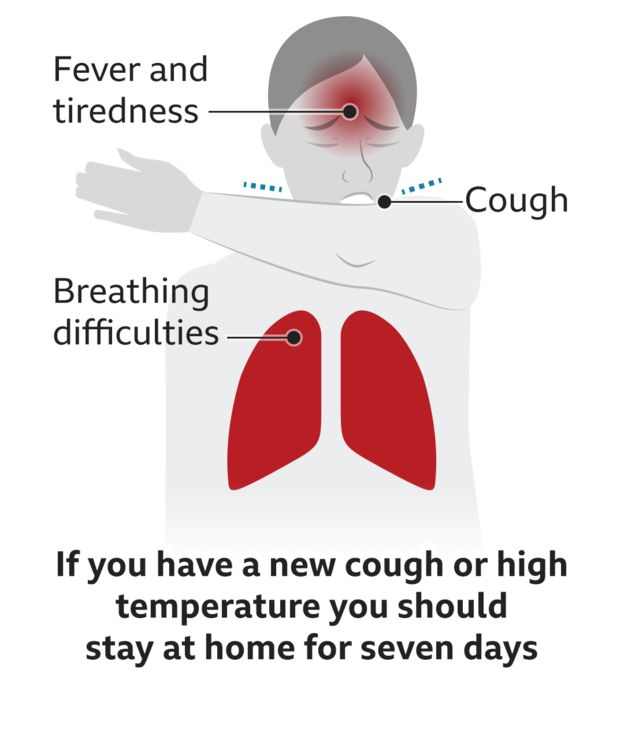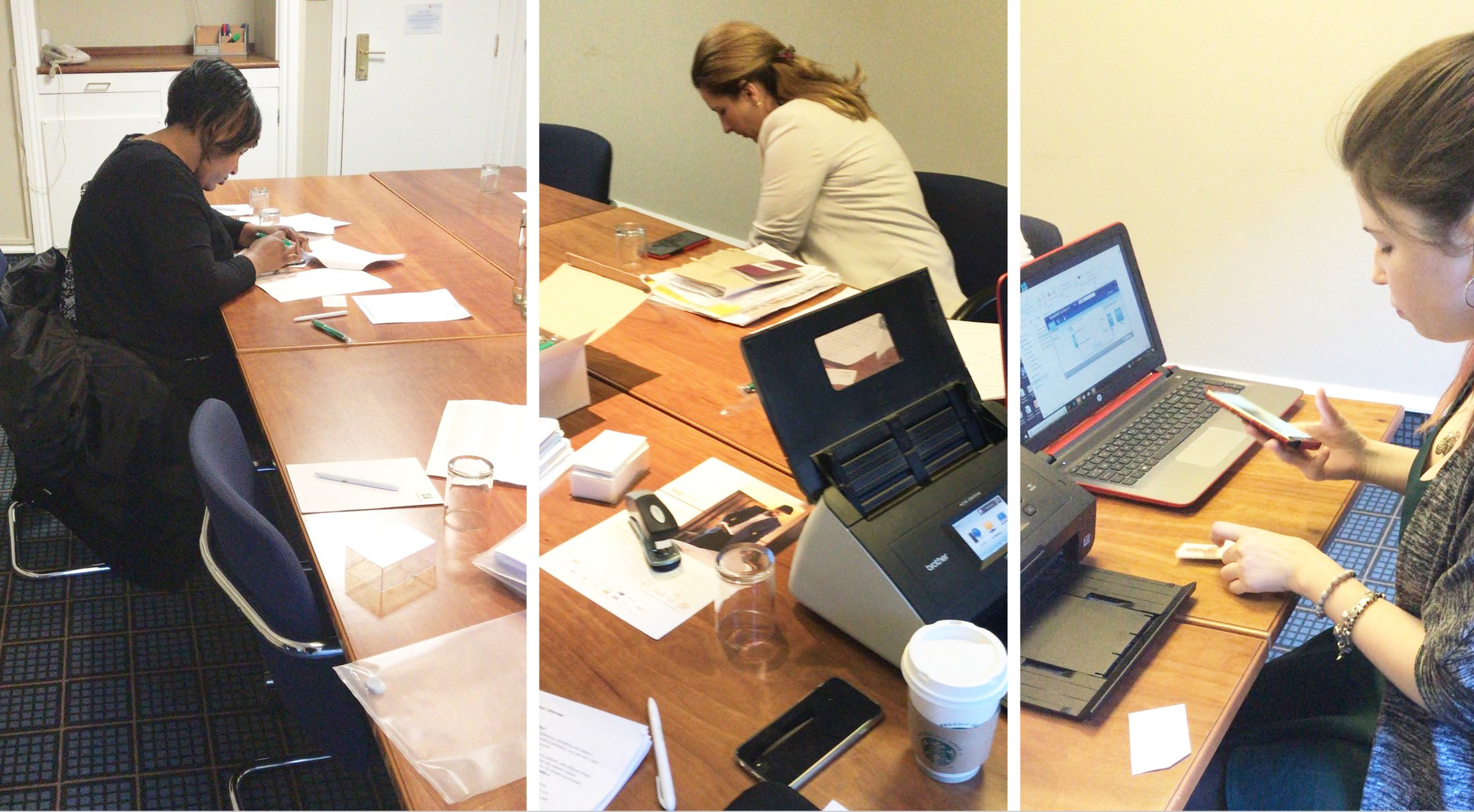Protecting your mental health during lockdown
Being concerned about the news is understandable, but for many people this is taking its toll on people's mental health, particularly those already living with conditions like anxiety and OCD.
People across the UK are now staying at home for long periods without the contact with friends, family and colleagues which would normally be part of everyday life. Some people may find the change easy to adapt to, but for others this will be a very difficult adjustment to make. It can make existing mental health problems worse.
Many are beginning to realise that this unique moment requires a focus on mental health as well as physical.
So how can we ensure our mental health is protected during the Covid-19 lockdown? Here are some tips for minding your mental health during the lockdown .
1. Get dressed and set up a routine
Creating a routine will help bring a sense of purpose to your days. With nowhere to go or nobody to see, it may seem pointless to get dressed and showered, but you’ll feel untidy and dirty by the end of the day. So, by just starting with simply getting dressed will help make you feel fresh and more like yourself. Without doubt, this is the quickest, easiest thing you can do that reaps the most benefits.
Think of a few things you could do that would make you feel accomplished – like studying for an hour, cooking, gardening or doing a workout video – and a few things you want to do – like gaming, binging Netflix. Perhaps do work around the house that you haven’t got around to all these years due to a lack of time. Lists are super useful here and will help you to look back and see what you have achieved with your day.
2. Stay connected
Advances in mobile technology in particular mean that we can stay connected through calls, text, WhatsApp, email, social media etc. Use this time to get in contact with people.
Try to connect with people who you haven't heard from in a while or people in your community who are likely to be isolated right now. The additional time at home can bring tension but it can also be an ideal opportunity to reconnect and strengthen relationships within the family.
Remember you can always mute WhatsApp groups and Facebook groups if you’re finding them too overwhelming. You can also mute keywords and unfollow accounts on most social media platforms., which will help limit unwanted content on newsfeeds.
3. Maintain a healthy lifestyle
The negative impact of sleep disruption on mood is well-established. Without the structure of having to get to school, college or the workplace, it can be easy to fall into unhealthy sleep habits like going to bed later and getting up later. Changes to your sleep cycle now could go on to impact your mood in the weeks and months ahead.
Scheduling a balanced range of activities in your day including:
• Getting adequate and healthy sleep
• Daily routine of working and resting
• Eating nutritious food
• Exercising at home, there are lots of video on YouTube you can try out
• Practice meditation or try to relax when you can
• Do not be afraid to discuss your anxieties and fears with someone. It helps to ventilate and talk things out.
4. Working from home
If you find yourself working from home for the first time, it means figuring out how to stay on task in a new environment that may not lend itself to productivity. But there are ways to deliver results and avoid going stir-crazy, from setting up a good workspace to the way you talk to your team.
- Have a clear workspace is crucial for your state of mind, and not just in terms of being in a "working" mindset but also so you're able to turn off when the working day is over.
- Washing and dressing appropriately is very important when working from home. It will not only improve your state of mind, it will psychologically prepare you to start work. Likewise, changing out of work clothes when you clock off for the day helps your brain to understand that the working day is over.
- Remember to eat. With no access to a canteen or shops you most likely will have to make lunch. Try to plan ahead what you will make so that it is built into your schedule and it’s a healthy and nutritious meal.
- Taking breaks regularly is very important to avoid being burnt out. Overworking will only result in less productivity and frustration. Being cooped up inside can lead to fatigue, therefore even walking around the garden or even watering plants around the house will help keep your mind active and focused.
- Establishing boundaries is very important, especially if you're employed by a company, you'll probably have set hours of work, and it's important to stick to these when you're working from home. Be ready to start your day at the same time as you would normally arrive in your office or workplace, and finish your day at the same time. Setting a “to do list” will help you stay on track, organised and create order. Sharing this with your employer is also helpful so they are aware of your work.
5. Maintain hygiene
Whilst it is important to maintain hygiene, do not be preoccupied with it all the time. Be mindful of washing hands, and not touching metal surfaces, do not cough or sneeze without tissue paper.
6. Limit social media usage
Whilst it’s important to stay digitally active, it is also important to carefully choose your news and media sources, particularly if some of the information you are receiving is leaving you feeling overwhelmed. Remember that some of the information online is driven by the views, opinions and agendas of individuals, and it may not be helpful for you to take those on as your own right now.
Choosing one or two well-informed sources and limiting yourself to set times during the day to check for ups for example at 9am and 5pm.
Try and share the positive stories you see: of people who have recovered or even a post on social media that made you laugh.
7. Understand the risk
Stay up to date on COVID-19 but only trust the information that comes from authentic sources.
From the government: https://www.gov.uk/coronavirus
From the NHS: https://www.nhs.uk/conditions/coronavirus-covid-19/
Try not to be glued to the news 24/7
Do not believe every message or tweet circulated in social media
8. Be prepared
Make a list of helpful contact numbers and emails – such as for healthcare and keep enough supply of non-prescription medicines to last at least a month. Talk to family and friends nearby about how you can support each other, in case one household is quarantined. For example, dropping supplies outside the front gate. Use self-help tools. There is a list of clinically approved apps that have been put together by ORCHA – who’ve been set up to help regulate the safety and value of these apps and make sure people find the right app for the right reason. They have recommended Wysa to cope with stress or anxiety issues. Wysa has released free tool packs for everyone to cope with the stress of isolation and current health anxiety. They want to ensure that everyone has mental health resources during this crisis.
At this time, it is important that everyone gets the help they need – and this includes looking after yourself.
Please continue to follow NHS guidance, stay at home, protect the NHS, and save lives.
Coronavirus (COVID-19) Company Notice
With the impact of the coronavirus (COVID-19) the health and safety of our workers, staff and clients is paramount. We are closely monitoring the guidance from the government and implementing their advice.
We have already made preparations to ensure business operations can continue as normal as possible in all scenarios.
We have facilities for remote working and access to all our systems, which allows us to react to and mitigate the risk of spreading the virus.
All members of our work force have been passed instructions on hand-washing and action to take if they feel unwell, this has also been published on the company’s websites and posted in our offices.
Guidance for educational settings
Guidance for healthcare professionals
Symptoms of coronavirus and what to do
We are taking the following specific actions:
- Wherever possible, we are offering client meetings to be "online" rather than face-to-face and avoiding any physical contact, such as handshakes
- We are asking all visitors to wash their hands with soap and water or hand sanitizer before entering our office
- We are following all government guidelines with respect to international travel
- We are suspending conferences and large internal meetings taking place in March and April that require travel
- We are undergoing regular deep-cleaning our offices
- Colleagues and temporary workers returning from travel, either business or personal, from a high-risk area are being asked to work from home for 14 days irrespective of symptoms
We do not currently foresee any impact on the continuity of our service, but should the situation change we will notify all our staff, workers and clients immediately. Although we believe the actions, we have put in place are appropriate for the current levels of risk, they are in constant review.
The government is continually providing updates of Coronavirus (COVID-19) in the UK.
For the latest information and advice please visit Public Health England.
You can also view the Government’s Coronavirus Action Plan.
There is also guidance for health professionals on the NHS website https://www.england.nhs.uk/coronavirus/
Track confirmed coronavirus cases in the UK
The coronavirus dashboard is now available to find out and track confirmed cases in the UK.
Symptoms of coronavirus & what to do
Symptoms of coronavirus
Coronavirus infects the lungs. The symptoms start with a fever followed by a dry cough, which can lead to breathing problems. It takes five days on average for symptoms to start showing.
The most common symptoms of coronavirus (COVID-19) are recent onset of:
- new continuous cough and/or
- high temperature
For most people, coronavirus (COVID-19) will be a mild infection

How to avoid catching or spreading coronavirus
DO:
- wash your hands with soap and water often – do this for at least 20 seconds
- always wash your hands when you get home or into work
- use hand sanitiser gel if soap and water are not available
- cover your mouth and nose with a tissue or your sleeve (not your hands) when you cough or sneeze
- put used tissues in the bin immediately and wash your hands afterwards
- try to avoid close contact with people who are unwell
DON'T
- do not touch your eyes, nose or mouth if your hands are not clean
What to do if you have symptoms of coronavirus
- You do not need to call NHS 111 to go into self-isolation.
- Use the 111 coronavirus service online assessment
- To protect yourself and others, do not go to a GP, pharmacy or hospital
- if you have symptoms of coronavirus infection (COVID-19), however mild, stay at home and do not leave your house for 7 days from when your symptoms started. This action will help protect others in your community whilst you are infectious. Read more advice about staying at home.
- plan ahead and ask others for help to ensure that you can successfully stay at home.
- ask your employer, friends and family to help you to get the things you need to stay at home.
- stay at least 2 metres (about 3 steps) away from other people in your home whenever possible.
- sleep alone, if that is possible.
- wash your hands regularly for 20 seconds, each time using soap and water.
- stay away from vulnerable individuals such as the elderly and those with underlying health conditions as much as possible.
If your symptoms worsen during home isolation or are no better after 7 days contact NHS 111 online.
If you have no internet access or unable to get help, you should call NHS 111. For a medical emergency dial 999.
Treatment for coronavirus
There is currently no specific treatment for coronavirus.
Antibiotics do not help, as they do not work against viruses.
Treatment aims to relieve the symptoms while your body fights the illness.
You'll need to stay in isolation, away from other people, until you have recovered.
Ending self-isolation
You should remain at home until 7 days after the onset of your symptoms. After 7 days, if you feel better and no longer have a high temperature, you can return to your normal routine. If you have not had any signs of improvement and have not already sought medical advice, you should contact NHS 111 online at 111.nhs.uk. If you have no internet access, you should call NHS 111.
Cough may persist for several weeks in some people, despite the coronavirus infection having cleared. A persistent cough alone does not mean you must continue to self-isolate for more than 7 days.
Track confirmed coronavirus cases in the UK
The coronavirus dashboard is now available to find out and track confirmed cases in the UK.
Staying up to date
The government is continually providing updates. For the latest information and advice please visit Public Health England.
There is also guidance for health professionals on the NHS website www.england.nhs.uk/coronavirus.
TLTP Medical - Healthcare Recruitment Drive
TLTP Medical’s recruitment drive has seen us travel to Kent, Essex, Southampton, Hertfordshire and across London where we have met and registered talented healthcare professionals who are working on a number of exciting NHS projects.
Our recruitment days have been the perfect opportunity for healthcare professionals to get a better insight into our current and upcoming healthcare positions. It’s also a chance for healthcare professionals to meet their friendly and well-informed recruitment consultant and for us to get to know you better.


We are proud to be recruiting Carers and Healthcare Assistants for several NHS Trusts including Kent, Surrey, Southampton, Hertfordshire and Essex. We are acquiring new projects and roles on a daily basis and in 2020 we will be continuing our recruitment drive throughout the UK.
Join our team
As a specialist medical recruitment consultancy providing locum, temporary and permanent staff to the NHS and private sectors, our disciplines cover a range of roles within:
- Primary Care
- Nursing
- Allied Health Professionals
- Health Science Services
- Domiciliary Care
- Administration and Clerical
All our consultants possess a wealth of recruitment experience in the medical field and are therefore able to provide appropriate, informed guidance to all candidates, from newly qualified health professionals through to senior leaders.

If you would like to be informed as soon as a new job opportunity is available, please Register and subscribe to job alerts to ensure you never miss our latest roles.
Alternatively, please Request a Call Back or contact us on 020 8709 6553 and a consultant can talk through your individual requirements.




